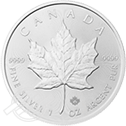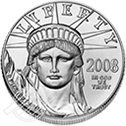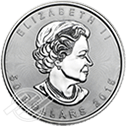Will The Fed Deliver in 2017?
The Fed finally raised interest rates this past month for the first time in a year. Although this rate hike did not come as any surprise to global markets, what did perhaps catch markets slightly off-guard was changes made to the central bank’s dot-plot for 2017.
The central bank is now forecasting three interest rate hikes in 2017 rather than just two. With Donald Trump taking office next month, things appear to be a lot more hawkish now than they did just a few short months ago. The question is, however, whether or not the Fed will actually deliver on another three rate hikes in the New Year.
After all, it was thought that the central bank would hike rates three of four times in 2016, yet it managed only one 25 basis point hike just this month.
Among a number of potential issues that could derail the Fed’s plans, here are some key ones that could play a major role in monetary policy in the New Year:
Geopolitics: Things are likely to see some significant changes under a Trump administration, and the world of geopolitics could possibly keep the Fed on hold. It is no secret that Trump intends on taking a hard line with China, and his relationship with Russia has also been a major source of scrutiny. Any significant flare-ups in key international relations has the potential to rock global financial markets and to keep the Fed on hold.
A Possible Recession: The current economic expansion is reported to be the third longest since the Second World War. At some point in 2017, if Donald Trump’s policies are not able to be implemented, the recent rally and economic optimism seen since his election could potentially reverse course-and fast. If U.S. economic activity begins to slow, it seems unlikely that the Fed would choke it off further by aggressively raising rates.
An EU Collapse: It’s no secret that the EU has had a number of issues in recent years, and many of those issues do not appear to be going away. Whether it’s the potential collapse of Italian banks or Great Britain voting to leave the union, the strength of the European Union could be considered a source of debate. Further signs of the EU coming apart at the seams could potentially have a ripple effect on the global economy, and could foster uncertainty and risk aversion.
Although this list could go on and on, these are three key areas that might strongly influence the Fed in 2017.
Tags: advantage gold, eu, Fed, gold, interest rate hike, monetary policy, recession


